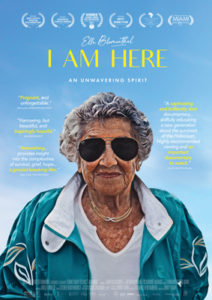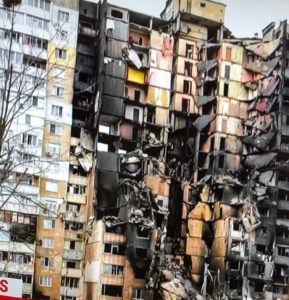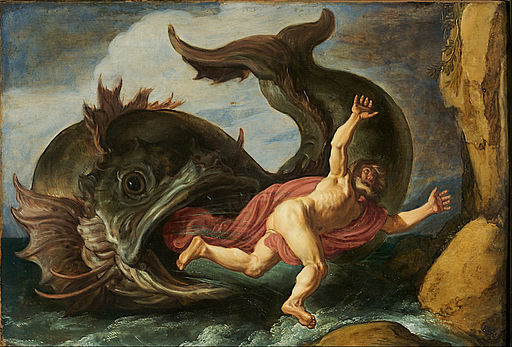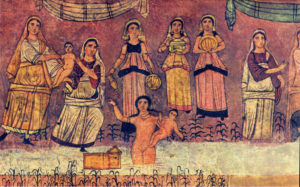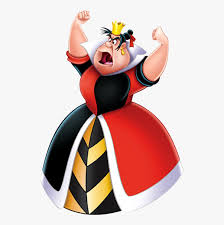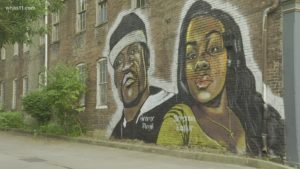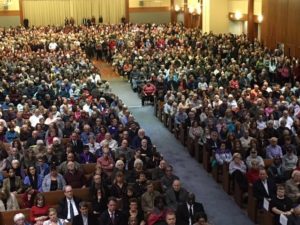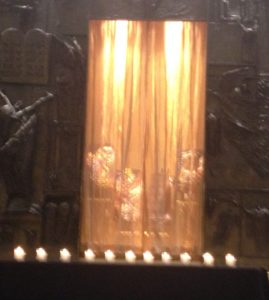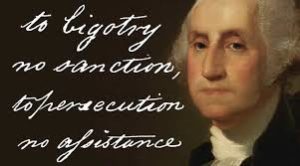 The Jewish community sees my husband as a respected professional who is educated, talented, outgoing, friendly, loving, caring, and compassionate. They see him give generously to Jewish organizations in the area and working around the world. They honor his commitment to the Jewish community, to the synagogue, to his large and well known family. The community sees my husband as a mensch. They were not witness to what took place in the privacy of our home. No one saw him hit me. Choke me. Bite me. No one heard him call me worthless, tell me I’m stupid, throw plates on the floor because the food I’d cooked was “disgusting”. No one was present when he dragged me by my hair out of our child’s room and promised that I would not survive the night. The Jewish community sees my husband but they don’t see everything.
The Jewish community sees my husband as a respected professional who is educated, talented, outgoing, friendly, loving, caring, and compassionate. They see him give generously to Jewish organizations in the area and working around the world. They honor his commitment to the Jewish community, to the synagogue, to his large and well known family. The community sees my husband as a mensch. They were not witness to what took place in the privacy of our home. No one saw him hit me. Choke me. Bite me. No one heard him call me worthless, tell me I’m stupid, throw plates on the floor because the food I’d cooked was “disgusting”. No one was present when he dragged me by my hair out of our child’s room and promised that I would not survive the night. The Jewish community sees my husband but they don’t see everything.
This is not my story.
But it could be.
I am a survivor of domestic violence. With the support of friends and family, and a deepened sense of self-worth, I was able to remove myself from a relationship once filled with love and compassion that had become toxic and dangerous.
Why am I telling you this? It violates every rule in the Rabbi playbook. Maintain certain boundaries. Congregants are not confidants. They need to see you as the best possible version of yourself. Now, this is all they’ll see. Weak, broken, victim.
A rabbi is supposed to be the symbolic exemplar of Judaism. A rabbi represents Judaism. That image can’t be muddled with. Can’t be tampered with. Can’t showcase or give voice to the pain, struggles, triumphs, strength of the human underneath. Well, I reject that. I am a rabbi. And I am a mother. And I am a daughter. And I am a friend. And I am a human. And sometimes I am strong. And sometimes I am not. Sometimes I know the answers. Sometimes I don’t. Sometimes I give help. Sometimes I seek it. This is who I am. All of those things. The sum of a thousand moving parts.
So I don’t mind you knowing my story. Because it is not just my story. I wish it wasn’t so many people’s story. But it is a far-too-common story and a far-too-commonly dismissed story. Because this doesn’t happen to us, in our communities, to strong, independent, educated people. To Jews. At least that’s what we tell ourselves. But no. This happens in every community. Victims of abuse can be women, men, non-binary, young or old, rich or poor, gay or straight, or anywhere on the spectrum. Non-Jewish or Jewish.
There is no cookie cutter image of what an abusive relationship looks like. Abuse can be physical, sexual, verbal or emotional. It can come in the form of the ongoing use of demeaning words like “you’re stupid,” or “ugly,” or “crazy.” It can be total access to and control over bank accounts and finances. It can be threats to injure children or pets. It can be monitoring and limiting friendships, going out, talking on the phone. And it can be fists and feet, books and belts.
All relationships exist on a spectrum ranging from healthy to violent with unhealthy falling somewhere in the middle. And any relationship may be tested and some days be more pleasant than other days. No relationship is rainbows and unicorns every day. But a healthy relationship is not defined by an absence of conflict; in truth, it is a space that is constructive and growth enhancing, rather than destructive and limiting. A healthy relationship is one built on caring, understanding, empathy, and an ability to truly see the other. An unhealthy relationship – one more likely to devolve into violence or become volatile and dangerous – is littered with contempt, competition, stagnation, oppression.
The vidui prayer – the alphabetical list of sins we wish to atone for each year – tells the story of destructive relationships. The sins of arrogance, bigotry, cynicism, deceit. Sins of jealousy, keeping grudges, lust, and malice. Being possessive, quarrelsome, rancorous, and selfish. And the sin of violence. Any of these sins, any of these inclinations, can chip away at a healthy relationship, twist it, distort it, transform it into something harmful, crippling, dangerous.
On average, in the United States nearly 20 people per minute will suffer some form of abuse by the hand (or mouth) of an intimate partner. Every day, domestic violence hotlines field over 20,000 calls.
We don’t like to talk about what is ugly and painful. We feel shame in revealing our less than perfect family lives. We don’t want the outside world to know. We don’t want each other to know. So we remain silent. But we are hurting. Some of us are suffering, right here, in our midst. Some of us have yet to realize the real shame lies in suffering alone, in silence, rather than reaching out.
Rabbi David Rose reflects on Yom Kippur, judgment, teshuvah, and domestic violence when he asks, “what if every day was Yom HaDin, The Day of Judgment? What if every single day brought fear and trembling? What if this constant judgment was never just? What if the judgment was not through self-awareness before the Heavenly Judge but was daily before an earthly, capricious, abusive individual who had set themselves up as your judge, jury and prosecutor? What if the sentences of this malicious judge were a way of exercising control and power over your life and choices?” This is what it is like for many suffering in abusive relationships. There may be periods of calm and tenderness but those spells never seem to last. Those suffering spend much of their time feeling judged, walking on eggshells, waiting for the next explosion, never sure exactly what will set it off. For too many, mostly women, sitting in our midst and in synagogues everywhere this Yom Kippur “normal” is living with constant fear and trembling.
As a survivor, I’m standing here to tell you two things – if you are in an abusive relationship, you have options; and if you know someone who is in an abusive relationship, you also have options – and responsibilities. If you are looking for an out, we can help. Leaving may have its risks, but this is a safe space – Temple B’rith Kodesh is connected with the Willow Domestic Violence Center of Rochester and we truly are equipped to help support you wherever you are in your process. In addition, the National Hotline for Domestic Violence has many valuable resources for both victims and friends.
If you believe someone in your life is suffering in an abusive relationship and you want to help them, remember these things above all else. They need your support. They need your understanding. They need your patience.
Sometimes the process to outgrow an unhealthy relationship, to extricate yourself from an abusive one is slow and incremental. As a bystander, a friend or loved one, it is so important to support that process, not rush the outcome. Abuse is about power and control, so one of the most important ways to help a person in an abusive relationship is to consider how you can empower them. You may want to jump to the end of the story – where your friend leaves their abuser. That end may be months or even years away. What you must do is support your friend, hold them through their process. Be there for them in good times and bad.
Life is a work in progress. Every year (hopefully every day) we work on evolving into our best selves. It takes determination, intention, introspection, and support. During the High Holy Days we recite the vidui as a community, taking on the sins of those around us. We have not all lied, cheated, dealt contemptuously with our peers or loved ones. Thankfully we are not all locked into abusive relationships or stuck on the outside hoping to help our friends and loved ones free themselves. But it is, sadly, part of our community. Part of every community. Whether we want to talk about it or not.
Opening up darkened spaces is a scary, saddening task, but it is a sacred one as well. As we’ve been taught by our tradition, “anyone who saves one soul, it is as if they have saved a whole world.” (TB Sanhedrin 37a) By shining light on domestic abuse, a reality in every community, even the Jewish community, we open ourselves to the possibility that we may, in fact, be able to save the soul, even the entire world of at least one person. On Yom Kippur, as a community, we declare this to be a safe place by unequivocally proclaiming that our tradition never tolerates controlling our intimate partners.
As I said earlier, if you are suffering in a relationship that is unhealthy or unsafe, we will be here for you. And if you are watching someone suffer, we will be here for you as well. You have options and resources. There is an other side. We can help you cross over.
And for all of us, whether directly affected or not, I offer this blessing:
Mi shebeirach avoteinu v’imoteinu… May the one who blessed our ancestors, Sarah, Rebecca, Rachel, and Leah, and Abraham, Isaac,and Jacob, provide protection, compassion, care, and healing for all those who have known violence and abuse within their families. May those who have been harmed find pathways to understanding and wholeness, and those who have caused harm find their way to repentance and peace. May those whose homes have become places of danger find their way to a sukkat shalom, a shelter of safety. And may our community be a source of support for those who have suffered in silence or shame. Amen.
***
Rabbi Rochelle Tulik
Temple B’rith Kodesh
Rochester, New York
Yom Kippur Morning – 5779
September 18, 2018
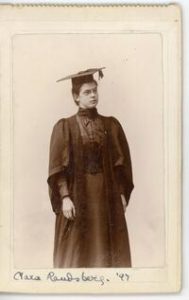 Clara Landsberg, a Jewish-born teacher, social worker, and pacifist, lived at Hull House in the room directly adjacent to Jane Addams’s for roughly 20 years and made significant contributions to the Chicago settlement house. However, scholars have paid scant attention to her story until now, perhaps because she never sought prominence during her lifetime.[1] While researching her connection with Bryn Mawr College as part of a larger project on early Jewish women students at the Seven Sisters schools, I have discovered that shortly after graduating in 1897, Landsberg left Judaism to become Episcopalian. Afterward, she maintained ties with her influential Jewish parents but also became a member of the nation’s Protestant elite and of an international sisterhood of pacifists. Like many leading women intellectuals and social workers of her day, Landsberg lived with her lifelong partner—a woman—in a predominantly female world. This article will provide an overview of Landsberg’s biography, with a focus on her role at Hull House.
Clara Landsberg, a Jewish-born teacher, social worker, and pacifist, lived at Hull House in the room directly adjacent to Jane Addams’s for roughly 20 years and made significant contributions to the Chicago settlement house. However, scholars have paid scant attention to her story until now, perhaps because she never sought prominence during her lifetime.[1] While researching her connection with Bryn Mawr College as part of a larger project on early Jewish women students at the Seven Sisters schools, I have discovered that shortly after graduating in 1897, Landsberg left Judaism to become Episcopalian. Afterward, she maintained ties with her influential Jewish parents but also became a member of the nation’s Protestant elite and of an international sisterhood of pacifists. Like many leading women intellectuals and social workers of her day, Landsberg lived with her lifelong partner—a woman—in a predominantly female world. This article will provide an overview of Landsberg’s biography, with a focus on her role at Hull House.